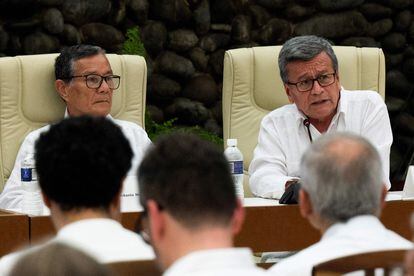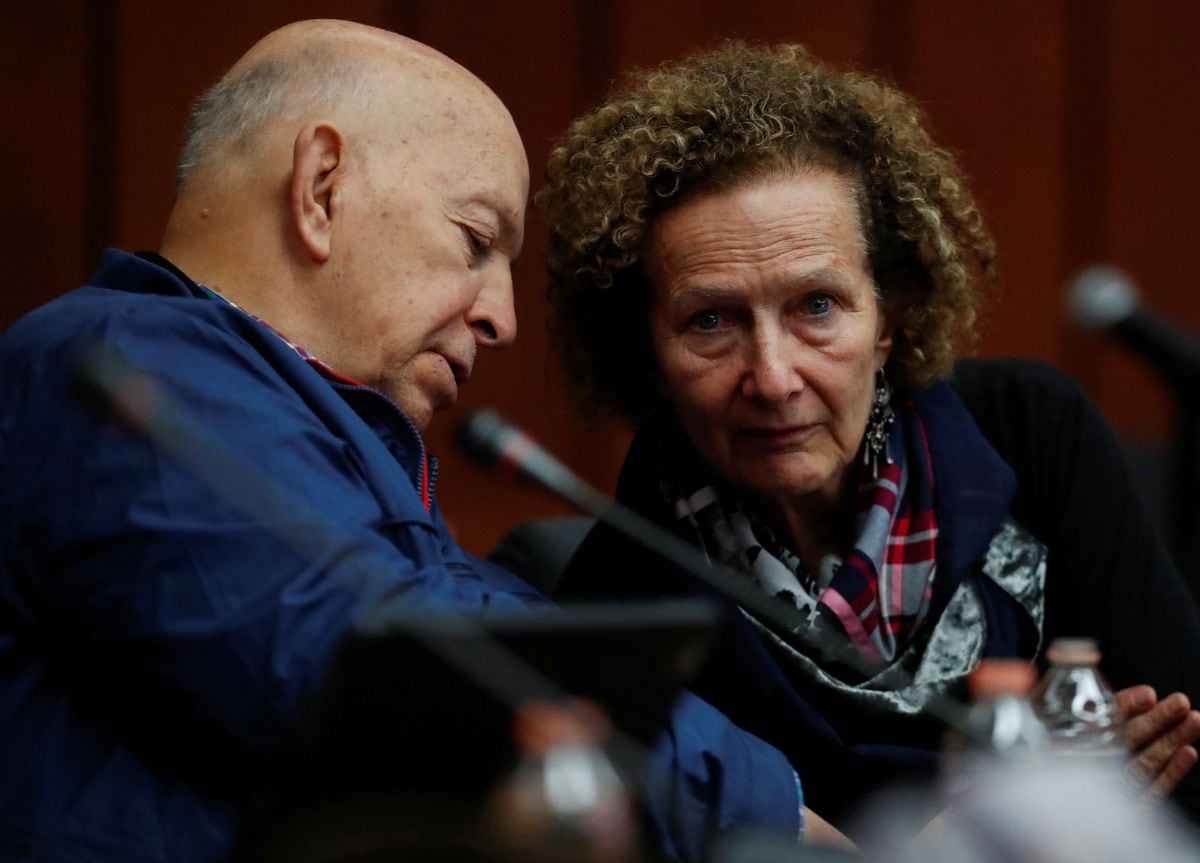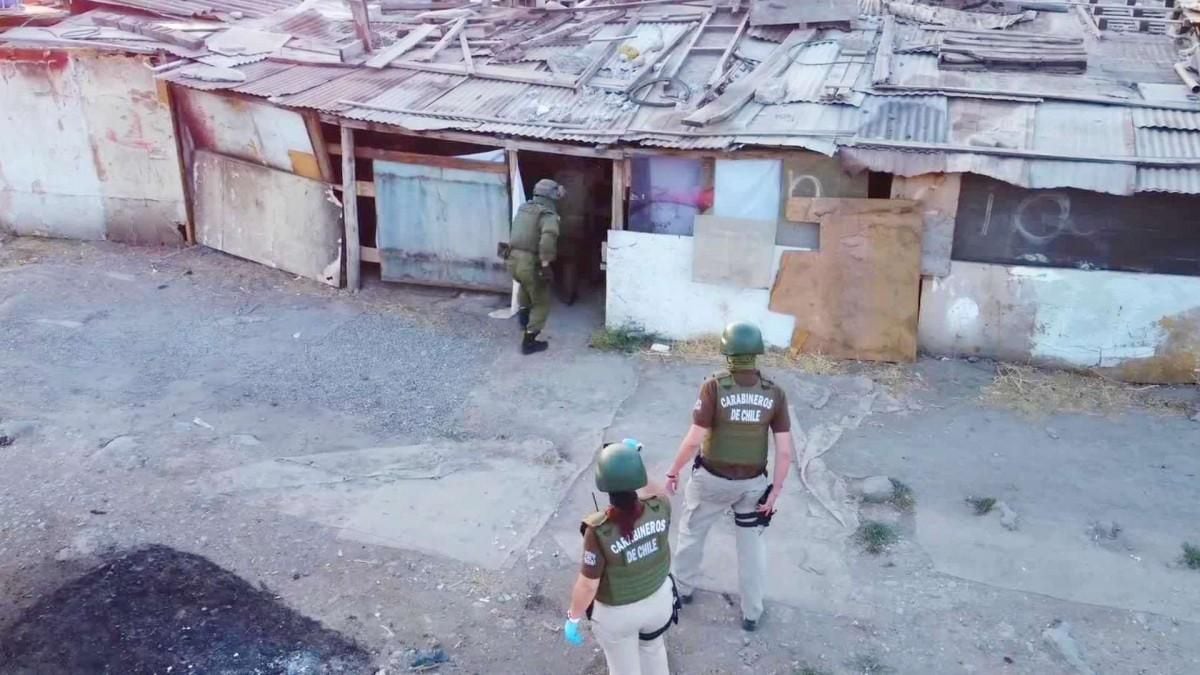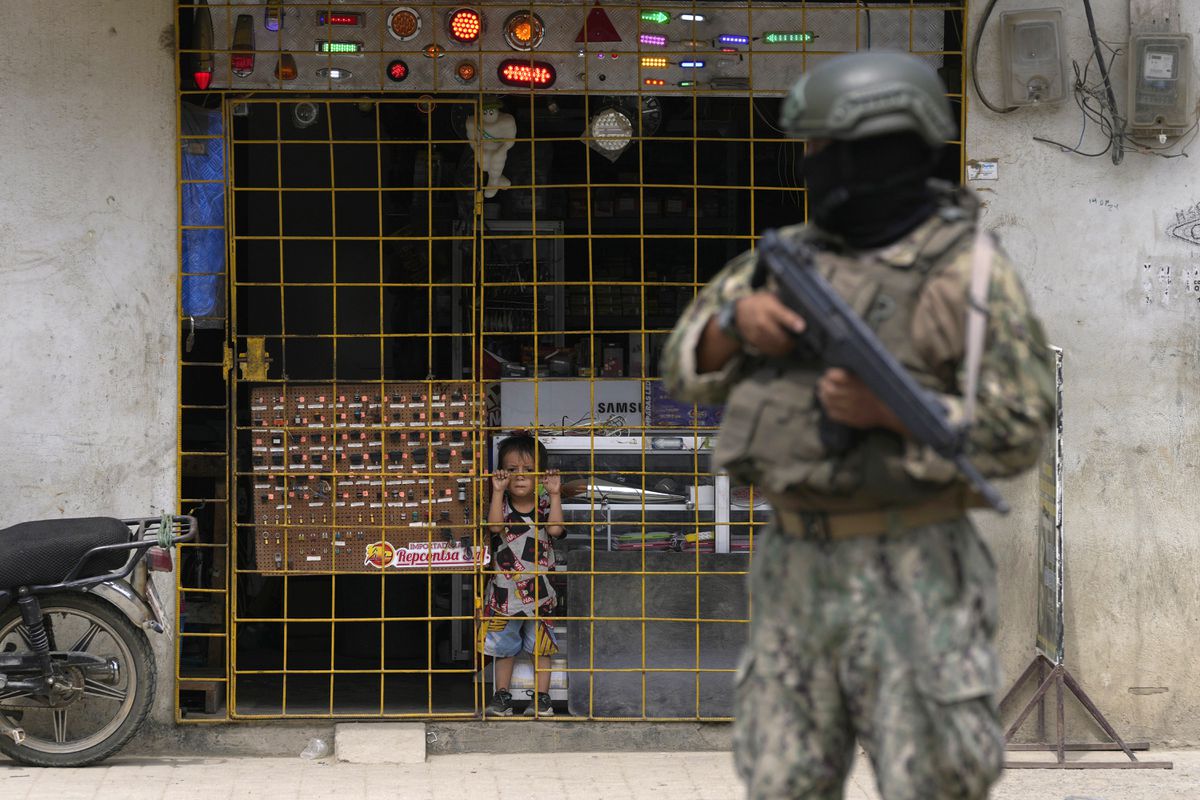Pablo Beltran (right) speaks during the closing of the Third Round of Peace Negotiations between the Government of Colombia and the National Liberation Army (ELN) in El Laguito in Havana.YAMIL LAGE (AFP)
The ceasefire signed this Friday by the Colombian Government and the National Liberation Army (ELN) does not contemplate the suspension of kidnappings and extortion carried out by the guerrillas, as clarified by the chief negotiator of the armed group, Pablo Beltrán. "The ELN's financial operations began to be discussed here, but that discussion did not end. It will continue to be discussed, they did not enter into these protocols, "said the former commander in chief of the organization. The operations include what the guerrillas call "retentions," in reference to kidnappings, and "taxes," alluding to extortion of the inhabitants of the territories where they have a presence.
"For you, what are ELN finances?" Beltran replied rhetorically to a journalist who asked him about the term. Then, he has exemplified with activities such as "taxes" and has reported that they will remain "for now". The intention, according to the chief negotiator, is that these operations will be suspended in the future, in another agreement. Meanwhile, he hopes that actions such as "withholdings" can be avoided, even if they are not part of the cessation: "If they are not necessary, they will not be done."
Colombian President Gustavo Petro signed the agreement Friday in Havana as part of the third round of negotiations. He did so together with the commander in chief of the ELN, Antonio García, and under the watchful eye of Cuban President Miguel Díaz-Canel. "We come to deliver to Colombia, and that is why we were elected, these possibilities for peace," Petro celebrated at the ceremony. It was a photo that will go down in history as the first great achievement of total peace, the flagship policy of the leftist president to pacify the country. The ELN is not a minor group: it is the oldest guerrilla group in Latin America, with a strong symbolic weight, and operates in 22 of Colombia's 32 departments, according to the Ombudsman's Office.
The agreement provides for a gradual implementation of the ceasefire. The enlistment stage is immediate, while the end of offensive operations begins on July 6 until reaching a full validity, of 180 days, from August 3. The monitoring and verification mechanisms – with the support of the UN, the Catholic Church and guarantor countries – will be installed in the coming days and weeks, so that the ceasefire should be in place throughout Colombian territory for the remainder of 2023. It has the explicit support of both sides, unlike the incident at the beginning of the year, when the ELN denied the bilateral ceasefire that the president had announced in December.
The main expectation is that the ceasefire will guarantee an end to the clashes between the state and the ELN. This guerrilla group is still active and attacks with some frequency: in March, an attack on an Army base killed nine soldiers and left eight wounded. One challenge is for the decisions of the negotiating leadership to be complied with on all fronts, including those operating with some degree of independence. "We are one voice and we represent the armed rebellion of the Colombian people," Antonio García, commander in chief since 2021, said Friday. Another is that the reduction in fighting produced by a ceasefire also leads to less violence against civil society, which is in the midst of conflicts between illegal groups, such as those that the ELN has against the Clan del Golfo in Chocó (Colombian Pacific) or against the dissidents of the extinct FARC in Arauca (border with Venezuela).
Senator Iván Cépeda, for his part, has stressed on Twitter that the agreement will guarantee the participation of civil society in the peace process. "We created the National Participation Committee; an inclusive mechanism of 30 sectors and 80 representatives so that, in a democratic way, it is designed how the participation of society will take off throughout the country," explained the congressman. Likewise, the Office of the High Commissioner for Peace has indicated that the agreement should be focused "on generating conditions so that the civilian population can exercise their rights and freedoms," in line with historical demands for social justice.
Subscribe here to the newsletter of EL PAÍS about Colombia and receive all the informative keys of the current situation of the country.




/cloudfront-eu-central-1.images.arcpublishing.com/prisa/2AYD5L6JMJAJ7F7KWQUHPVVVR4.jpg)


/cloudfront-eu-central-1.images.arcpublishing.com/prisa/XTSAGQZPYBGJZPC7MCRBBZLC7E.jpg)

